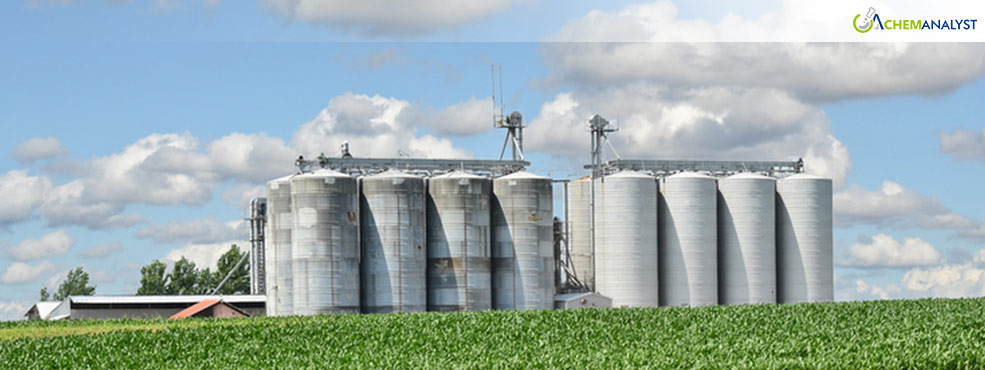Welcome To ChemAnalyst

Ethanol producers in Europe are set to encounter rising production costs in 2025 due to a combination of poor harvests, increasing feedstock prices, and regulatory uncertainty. Adverse weather conditions impacting key crops like wheat and corn are expected to limit feedstock availability and drive-up costs, while fluctuating greenhouse gas emissions values add complexity to pricing.
The 2024-25 harvest season in Europe has been tough, especially in major grain-producing countries. Ukraine, Europe’s largest wheat exporter, faces a drop in wheat production, expected to fall to 22 million tons. Corn production is expected to drop by 27%. This will tighten feedstock supplies and raise production costs.
In France, Europe’s largest Ethanol producer, excessive rain has cut wheat output estimates. Wet conditions in other regions have led to higher toxin levels in corn, which could impact Ethanol quality. These developments are tightening feedstock supplies and raising production costs. They are straining Ethanol producers' profit margins across Europe.
Adding to the challenges, the European Union’s revision of greenhouse gas (GHG) emissions values under the Renewable Energy Directive (RED II) has been delayed. Slow submission of reports from member states leaves producers with outdated figures. This uncertainty could soon affect Ethanol prices, especially in markets with strict emissions reduction targets.
Despite these challenges, demand for Ethanol with higher GHG savings is expected to rise in 2025. Several European countries will have stricter renewable fuel standards. Germany's GHG quota will rise. So, carried-forward certificates will be suspended. This will drive demand for higher GHG savings Ethanol and boost its price premium.
In the Netherlands, steady premiums for double-counting Ethanol are expected. This is despite slightly reduced blending targets. The Dutch government's limit on carryover GHG certificates for 2025 is not expected to affect prices much. The change in regulations and demand for low-GHG Ethanol will affect market trends.
Brazil is boosting its Ethanol production, especially from corn, as part of its RenovaBio legislation. New corn Ethanol plants, like those operated by INPASA, will expand Brazil’s production capacity, positioning it as a global player. Despite this, the U.S. remains well-positioned to dominate the international market, leveraging reliable corn supplies.
Experts believe that, despite Brazil's expanding domestic consumption, U.S. Ethanol producers will continue to lead in the global market. The U.S. benefits from reliable corn supplies and advanced production technologies. This gives American producers a competitive edge over other countries, ensuring their continued dominance in Ethanol exports worldwide.
By 2025, European Ethanol producers will face high feedstock costs and regulatory uncertainties. But there is growth potential in higher GHG savings and global exports. Brazil's strong production should continue. Favorable weather and demand drive this. But global feedstock price hikes may hurt profits.
We use cookies to deliver the best possible experience on our website. To learn more, visit our Privacy Policy. By continuing to use this site or by closing this box, you consent to our use of cookies. More info.
